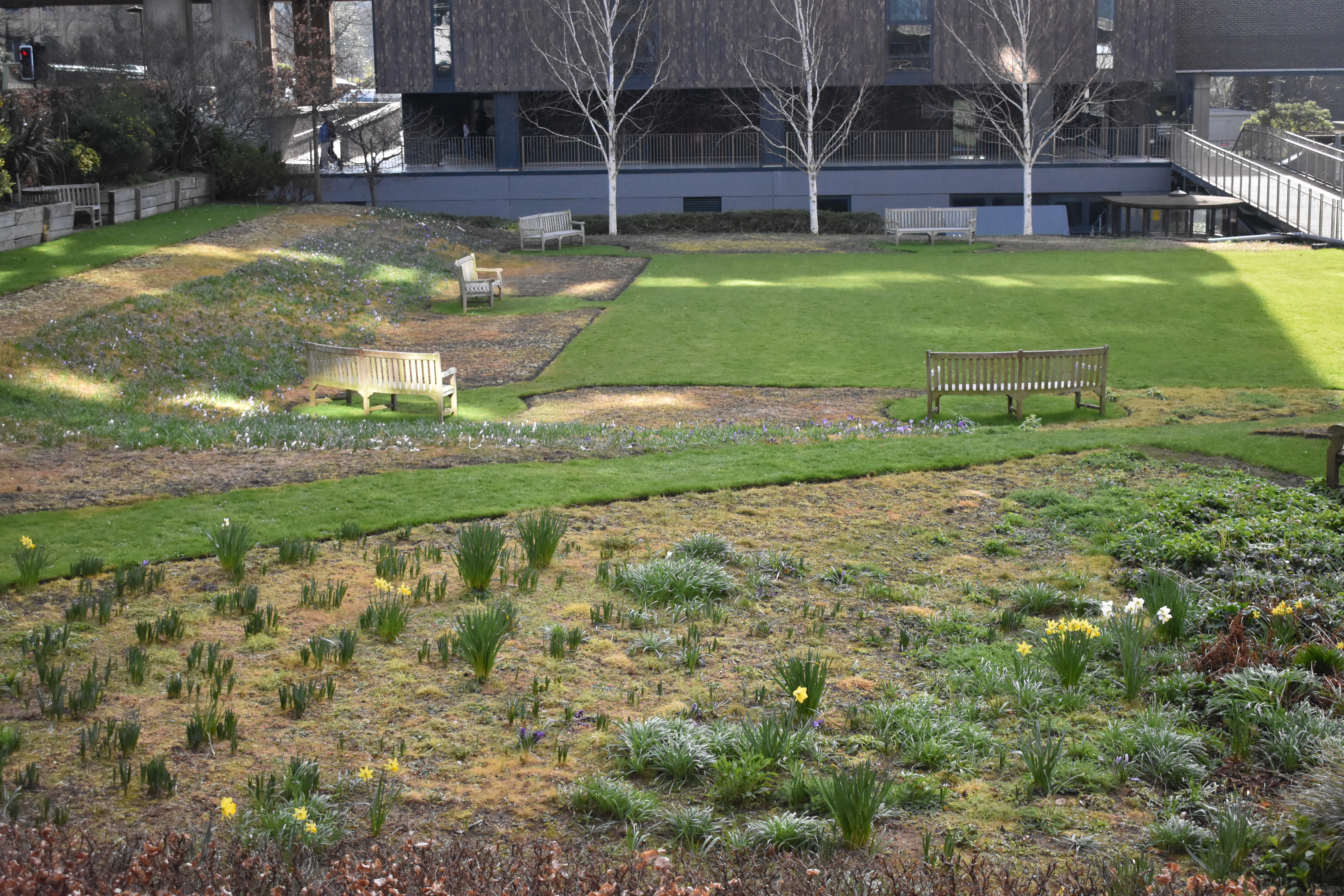Cristina and Charlotte have been our Sustainability Communications Placements this year and have just hit the six-month mark of their time with us. Over the past few months, they’ve contributed to various projects and learned a great deal along the way. We sat down with them to reflect on their experiences in the role so far, to hear about the skills they’ve developed, and to find out what they’ve enjoyed most about working with the team.
So, tell me a bit about your journey that led you to apply to this role?
Charlotte Epton (CE): I came to Newcastle University to study Environmental Science and then stayed to finish my masters in Clean Technology. Whilst my degree was sustainability focused, I didn’t have much work experience outside the lab and wanted to get some more practical experience in the sector. I also loved Newcastle as a city and my time at university, so this placement seemed like the perfect opportunity for me to learn more about sustainability in a large organisation.
Cristina Latuff (CL): Ihad just finished my first two years of undergraduate Geography at Loughborough University and was in search of a placement that combined my passion for sustainability, with my long-standing hobby of media production. This job is just that! I previously worked in content creation and social media management, so I have some experience in designing eye-catching graphics and creating student-facing videos.
Since joining the team, has there been any aspects have you enjoyed the most?
CE: I really enjoy how much variety the role has, we have worked on projects relating to energy, water, waste, and biodiversity, so no two days are the same! I also have particularly enjoyed developing promotional materials for the teams’ events and initiatives, from posters, to videos, and web editing. This is not something I had much experience in before, so it has been a challenge to get a bit more creative. I have also really enjoyed learning about the renewable energy projects on campus and going up on the roofs to see the solar panels was a highlight.
CL: One of my favourite aspects of the job so far has been learning about the energy management side of the University. It has been fascinating to get an overview of how the building management system works, seeing how each building has its own complex network of heating and ventilation units. I also loved the opportunity to plan and produce the Estates and Facilities contractor induction video and the promotional videos we made for Internal Communications – the perfect excuse to use Adobe Premiere Pro and jump in front of a camera!
Have you been able to hone any new skills this year? And do you feel like this role has introduced you to the sustainability sector?
CE: Absolutely! I feel like I have learnt a lot since joining the team. We have received specialist training in a variety of skills, one example being web page editing which we have used to re-design the University’s Travel pages, making them more accessible and engaging. We have also received training in energy management and BMS, skills we utilise to complete the monthly recharges and room heating extensions. Additionally, I believe working in the team has improved my overall confidence and my ability to collaborate with others, which has been useful in advertising content across the university.
CL: One of the main skills Charlotte and I have homed in on is networking with the University community. We are constantly interacting with students at career fairs, like Planet Connect, getting an insight on their interesting research projects and opinions on sustainability topics. We’ve also worked with an array of colleague teams including Capital, Staff Wellbeing, Internal Communications, Central Social Media, ResLife, Catering and the Student Union. It’s great to see so many colleagues are keen on promoting our work, and collaborating, e.g. the Staff Wellbeing Team giving us our own Sustainability spotlight on the monthly newsletter.
How have you found working for the University, and in Estates and Facilities especially?
CE: Everyone in the office is so friendly, and the open plan office means we can chat and get to know colleagues across Estates and Facilities. The sustainability team are very welcoming and It’s great to work with like-minded people who are passionate about sustainability.
CL: Working in Estates has been a great environment, especially for my first office job ever. The rotating seating plan has been a great way to chat to different people and learn some Geordie slang. Everyone is so friendly and is quick to give me restaurant recommendations, and weekend plan ideas. Estates were also very supportive of our bake sale to raise money for the National Hedgehog Preservation Society. Many people brought delicious bakes and helped us raise over £200 for the cause!
What are you looking forward to doing in the role in the upcoming few months?
CE: I’m excited about the opportunity to shadow different colleagues during the auditing season in April. It will be a great chance to learn more about the internal audit process and develop new skills. I’m also looking forward to creating content around green spaces on campus and across Newcastle, especially with the weather getting nicer and the sun starting to come out more!
CL: I’m really looking forward to the month of May, with events like National Hedgehog Awareness Week and World Bee Day. Seeing campus flourish with wildflowers and wildlife will be great for promoting biodiversity initiatives. We’re planning on making some exciting nature video content so watch this space!
What do you hope the future holds for you both?
CE: I would love to stay in the sustainability and environmental sector, as I’ve really enjoyed working with people who are just as passionate as me. In my spare time, I’m working with some academics within the University on publishing my thesis research on carbon capture, so hopefully that project will be finished this year!
CL: Well, I have to go finish University first of course! I’m currently planning my dissertation for final year, looking at redesigning sportswear to fit a circular economy model. I’ve always been interested in garment construction, having been sewing since the age of four. Although it may sound niche, I would love to pursue a career in sustainable textile manufacturing and am looking at the possibility of doing a Masters in London around this.
Thank you to everyone in the Sustainability Team who have made these last six months so enjoyable and educational for us both! We’re excited for what’s still to come and can’t wait to continue working with the team as we help drive sustainability initiatives forward. Thanks for following along, and we look forward to sharing more with you soon! If you have any questions about the work we do, email us at sustainable-campus@ncl.ac.uk.
Thanks for reading!





























